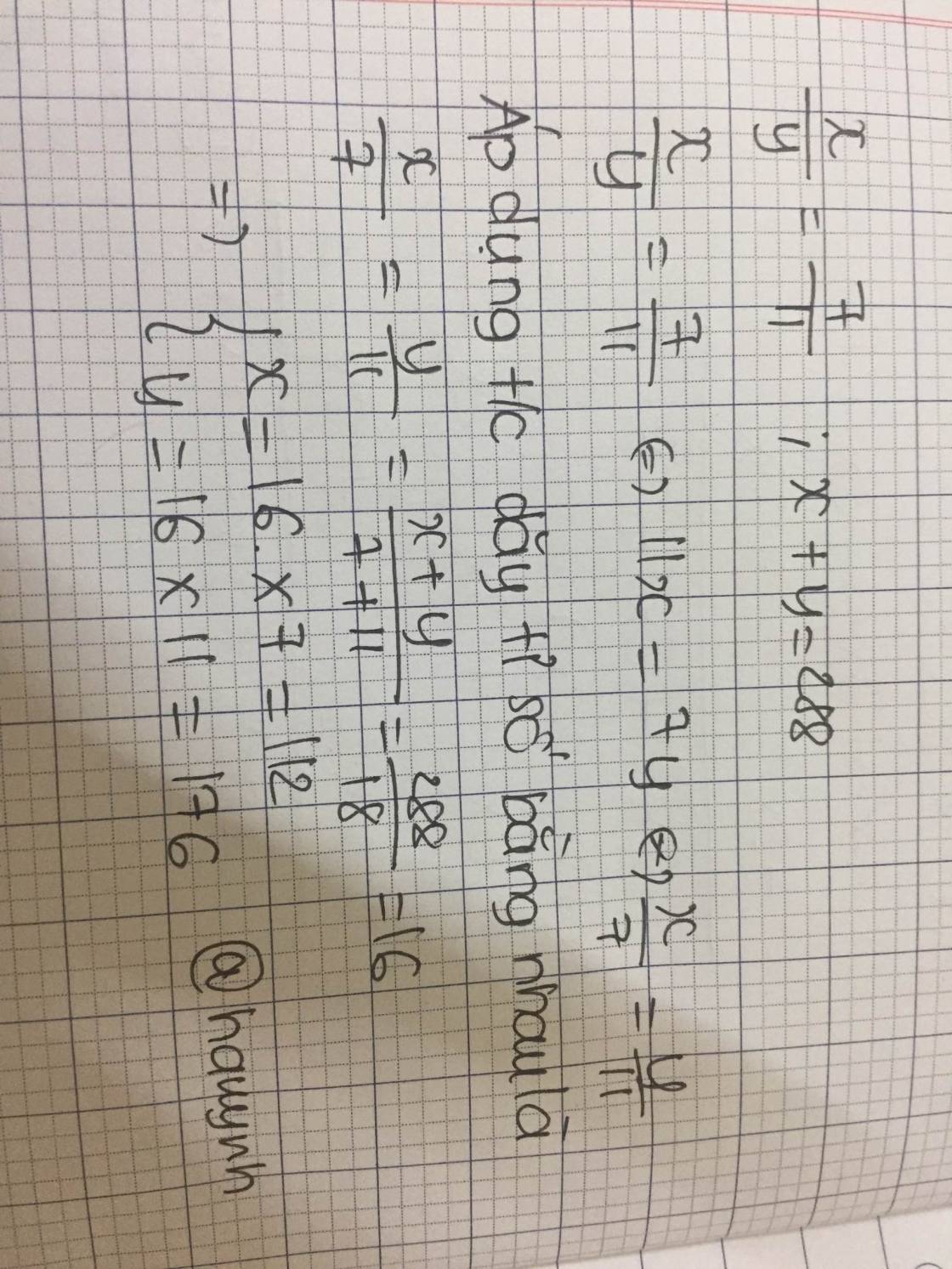
Hãy nhập câu hỏi của bạn vào đây, nếu là tài khoản VIP, bạn sẽ được ưu tiên trả lời.


2x+2x+3=288
2x.1+2x.23=288
2x(1+23)=288
2x.9=288
2x=288:9
2x=32
2x=25
=> x=5
Vậy x=5

\(\left(-\frac{1}{3}\right)^{3+n}:\left(-\frac{1}{3}\right)^n=\left(-\frac{1}{3}\right)^{3+n-n}=\left(-\frac{1}{3}\right)^3=-\frac{1}{27}\)
2. n = {2;3;4}
3.2x + 2x + 3 = 288
=> 2x . 2 = 288 - 3 = 285
=> 2x = 285 : 2 = 285/2.
Mà 2x không thể bằng phân số nên x không tồn tại nhé

Ta có: \(\frac{x}{y}=\frac{5}{4}\Rightarrow\frac{x}{5}=\frac{y}{4}\Rightarrow\frac{x^2}{25}=\frac{y^2}{16}\Rightarrow\frac{2x^2}{50}=\frac{3y^2}{48}\) (*)
Từ (*),áp dụng t/c tỉ dãy số bằng nhau,ta có:
\(\frac{2x^2}{50}=\frac{3y^2}{48}=\frac{2x^2-3y^2}{50-48}=\frac{288}{2}=144\)
\(\Rightarrow\hept{\begin{cases}2x^2=7200\\3y^2=6912\end{cases}\Leftrightarrow\hept{\begin{cases}x^2=3600\\y^2=2304\end{cases}}\Leftrightarrow\hept{\begin{cases}x=60\\y=48\end{cases}}}\)


a.\(\left(\frac{1}{3}-\frac{1}{2}\right)^{x-1}=\frac{1}{36}\)
\(\Rightarrow\left(-\frac{1}{6}\right)^{x-1}=\frac{1}{36}\)
\(\Rightarrow \left(-\frac{1}{6}\right)^{x-1}=\left(-\frac{1}{6}\right)^2\)
=> x-1=2
=> x=2+1
Vậy x=3.
b.\(81^{-2x}.27^x=9^5\)
\(\Rightarrow\left(3^4\right)^{-2x}.\left(3^3\right)^x=\left(3^2\right)^5\)
\(\Rightarrow3^{4.\left(-2x\right)}.3^{3x}=3^{10}\)
\(\Rightarrow3^{-8x}.3^{3x}=3^{10}\)
\(\Rightarrow3^{-5x}=3^{10}\)
=> -5x=10
=> x=10:(-5)
Vậy x=-2.
c.\(2^x+2^{x+3}=288\)
\(\Rightarrow2^x.\left(1+2^3\right)=288\)
\(\Rightarrow2^x.9=288\)
\(\Rightarrow2^x=288:9\)
\(\Rightarrow2^x=32\)
=> 2x=25
Vậy x=5.


Ta có: x:y = 7:11=> \(\dfrac{x}{11}=\dfrac{y}{7}\)
Áp dụng t/c của dãy tỉ số bằng nhau:
\(\dfrac{x}{11}=\dfrac{y}{7}\Rightarrow\dfrac{x+y}{11+7}=\dfrac{288}{18}=16
\) (vì x+y=288)
=> \(\dfrac{x}{11}=16\Rightarrow x=176
\)
=> \(\dfrac{y}{7}=16\Rightarrow y=112\)
Vậy ...
HT!

2x+2x+3=288
=>2(2x)=288-3=285
2x=142,5(vô lí)
=>ko có x thỏa mãn
\(2^x+2^{x+3}=288\)
\(\Leftrightarrow2^x+2^x.2^3=288\)
\(\Leftrightarrow2^x\left(1+2^3\right)=288\)
\(\Leftrightarrow2^x=32=2^5\)
\(\Leftrightarrow x=5\)